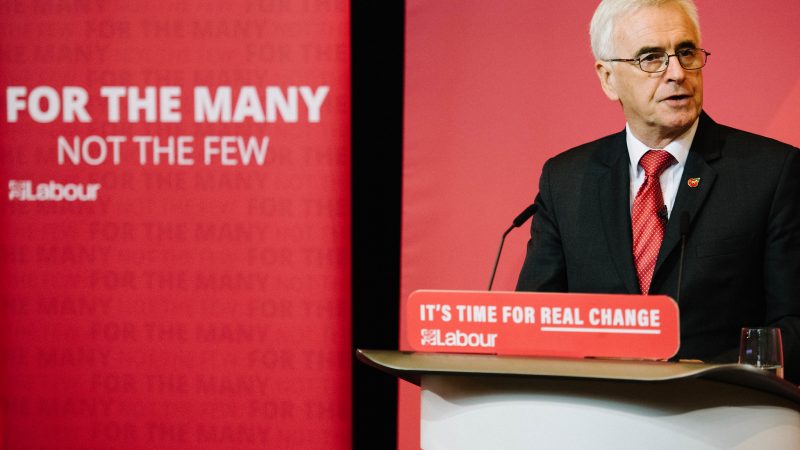
Last week’s Budget was described by the Institute of Fiscal studies as a once-in-a-decade event, up there with past game-changing budgets announced by Geoffrey Howe, Norman Lamont, Gordon Brown and George Osborne. The IFS also argued that the tax and spend announcements in the Budget were unrelated to the Covid pandemic but were instead responses to the increasingly ageing population and the strains facing the NHS other public services.
It’s true that the increases in tax and in spend on health, education and Universal Credit were not directly related to Covid. This misses the potential significance of the political paradigm change that has taken place in this recent period, however. The Budget was brought about by people’s experience of the Covid pandemic. It has forced a radical change in political direction upon even this right-wing Conservative government.
Media commentators have regularly challenged Labour spokespeople with the question: “Isn’t this the Tories parking their tanks on your lawn?” If we have to use military analogies, then a more accurate depiction would be the Tory trenches being overwhelmed by a mass surge of people’s rejection of austerity and demand for change.
At the end of his Budget speech, Rishi Sunak rather pleadingly sought to reassure Conservative backbenchers of his commitment to his heroine’s’ Thatcherite ideology of small state, tax cuts and privatisation. Yet both he and Johnson know that even with their sizeable parliamentary majority they can’t get away with much more of that any more. The people won’t let them.
The Conservative Party and almost certainly multi-millionaire Sunak’s own public relation’s team will have invested significant sums in polling in advance of the budget. This will have picked up what is obvious to anyone with an inkling of what’s being talked about across at school gates, kitchen tables or in breaks at work. The sight of paramedics, nurses, doctors and social care workers heroically struggling to care for us in the pandemic has exposed how close to collapse the Conservative’s austerity policies had put the NHS.
The scale and spread of the pandemic have meant so many more families across the country have come into contact with and have had to rely upon our public services from the NHS, social care, council support services and, especially during lockdown, our teachers and schools. That has not only engendered a greater respect and support for the public servants that have served us throughout the pandemic, and a loyalty to the NHS in particular, but also a comprehensive rejection of the argument for further austerity.
And it’s been extremely tough financially for even those with regular employment and even worse for those struggling on low pay or incapable of work. Now they are being hit with energy price hikes and rising inflation. Pay freezes and benefit cuts are no longer tolerable. That’s why Sunak has had to move on funding for our NHS, education and councils and lift the pay freeze.
Far from out-manoeuvring the Labour Party, this has presented the Labour leadership with the biggest political opportunity in a decade. First, it has confirmed beyond doubt all that Labour has been saying that austerity was a political choice not an economic necessity.
Second, it is causing a fundamental divide to open up within the Conservative Parliamentary Party between the Thatcherite majority and the large minority, swollen by ‘Red Wall’ seat MPs, who are coming back from their constituencies with their ears ringing with the demands of their constituents for properly funded public services, a real pay rise and complaints about the failure to reverse the cut to universal credit for everyone.
Third, it’s inevitable that the policies announced by Sunak are so half-hearted that they will fail to go anywhere near to meeting the needs of our public services after 11 years of cuts, fail to deliver on Johnson’s super-hyped levelling up promises and will do little to overcome the pay freeze that people have had to endure since the 2008 banking crash and which is to be exacerbated now by the rises in tax, energy prices and inflation.
A word of warning – the Tories are now vulnerable but Labour can only exploit this political opportunity if it can respond effectively to the question put to every Labour spokesperson after they have attacked the Tories. It is “What would you do?”. This cannot be evaded any more by responding with micro policies that simply do not meet the scale of the macro challenges our people face or with the mantra of “wait for the manifesto”.
It’s time to be big, bold, radical and confident. We need that change of direction fast if we are to have time to set out a convincing, credible alternative before an election most likely to be in Spring 2023. And we need a sense of urgency from the Labour leadership – because the gossip in the Commons tearoom amongst the Tories is that many want Johnson to go to the electorate sooner, before the financial impact of this Budget and the economic slowdown predicted later in the CSR time period begins to take effect.




More from LabourList
‘Labour promised to make work pay. Now it must deliver for young people’
‘Council Tax shouldn’t punish those who have the least or those we owe the most’
Two-thirds of Labour members say government has made too many policy U-turns, poll reveals